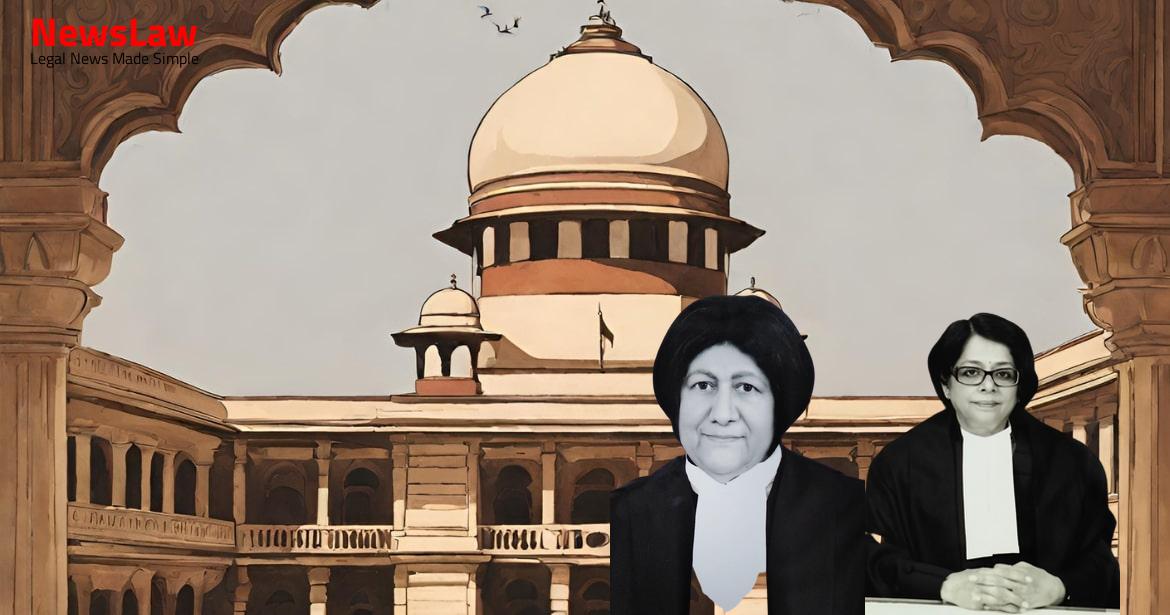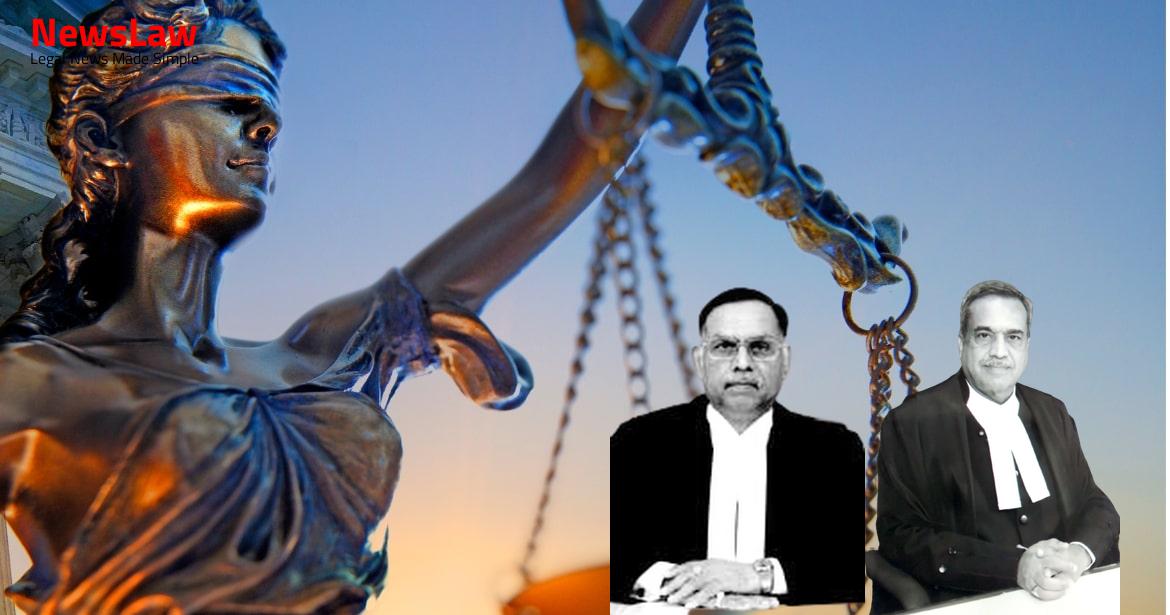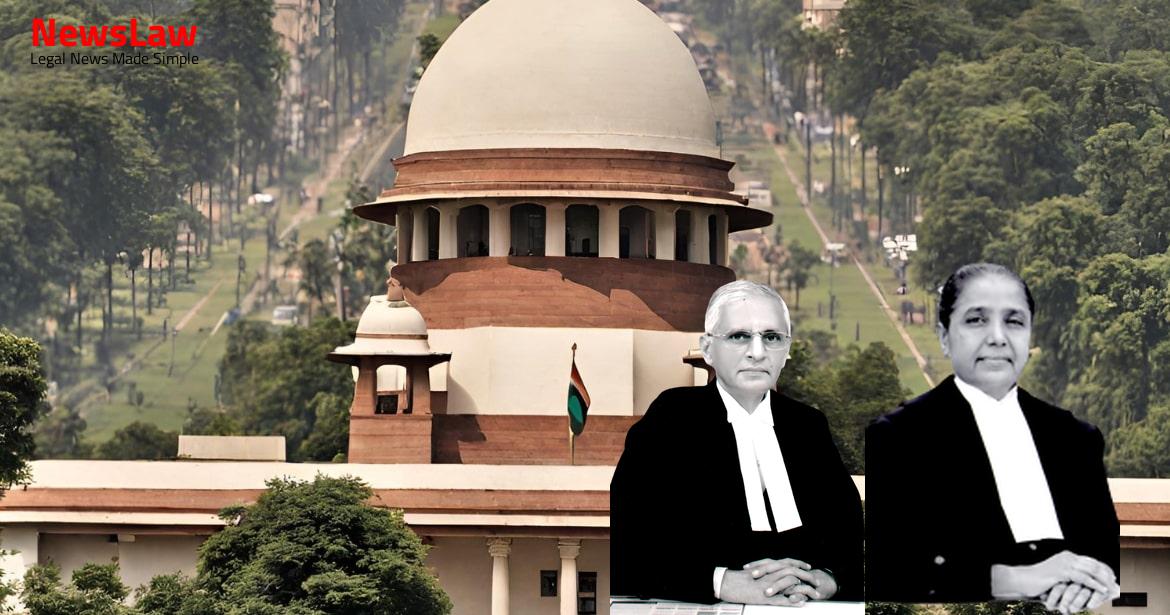The court’s analysis of the provision of anticipatory bail in the Muslim Women (Protection of Rights on Marriage) Act is a crucial aspect of the recent legal case. Delving into the interpretation and application of the law, the court’s decision sheds light on the intersection of personal liberty and statutory provisions. Let’s explore how the court navigated through the complexities of granting anticipatory bail in cases related to the Act.
Facts
- The appeal arises from the rejection of an application for anticipatory bail under Section 438 of the Code of Criminal Procedure 1973 by the Kerala High Court.
- The appellant’s son entered into a second marriage, resulting in a child born in May 2017.
- A first information report was lodged on 27 August 2020, alleging offences under Section 498-A of the Indian Penal Code and the Muslim Women (Protection of Rights on Marriage) Act 2019.
- The first petitioner’s spouse pronounced talaq three times on 5 December 2019 according to the FIR.
- The High Court initially rejected the application for anticipatory bail, which was withdrawn due to lack of proper pleadings.
- The Special Leave Petition was not entertained, and the appellant was granted time to surrender and apply for regular bail.
- Both the first petitioner and the second petitioner (appellant) applied for anticipatory bail before the Kerala High Court.
- The issue in this appeal is the justification for declining the prayer for anticipatory bail by the appellant.
- The FIR was lodged at North Parur Police Station in District Ernakulam Rural.
- The Single Judge of the High Court declined to grant anticipatory bail to the appellant on 02 November 2020.
- The order of the High Court did not provide any reason for the denial of anticipatory bail.
- As there was no settlement reached, the High Court was approached again for the grant of anticipatory bail.
Also Read: Electoral Malpractices in Mayor Election
Arguments
- Mr. V. Chitambaresh argued that the court’s power to grant anticipatory bail under Section 438 of the CrPC is overridden by Section 7(c) of the Act.
- In contrast, Mr. Haris Beeran contended that Section 7(c) of the Act does not explicitly prohibit the court from granting anticipatory bail.
Also Read: Balancing Power and Transparency: Electoral Bonds Struck Down, Disclosure Mandated
Analysis
- The offence under the Act is committed by the Muslim man pronouncing talaq, not the appellant who is the mother-in-law.
- Granting bail recognizes the presumption of innocence and values personal liberty.
- The Magistrate may grant bail after hearing the married Muslim woman and being satisfied of reasonable grounds.
- Section 7(c) does not impose a complete bar on granting anticipatory bail.
- The court must hear the married Muslim woman before granting anticipatory bail for an offence under the Act.
- Parliament has not explicitly excluded the application of Section 438 of CrPC in the Act.
- Section 7 of the Act prohibits any person accused of an offence punishable under the Act to be released on bail without the Magistrate’s satisfaction after hearing the married Muslim woman on whom the talaq is pronounced.
- The non-obstante clause in Section 7 overrides anything in the Criminal Procedure Code (CrPC), but only in relation to clauses (a), (b), and (c) of the Act.
- The offence under Section 3 of the Act is related to the pronouncement of talaq by a Muslim husband on his wife, rendering it void and illegal.
- Section 4 of the Act penalizes a Muslim husband who pronounces talaq on his wife with imprisonment.
- The Act’s provisions specifically apply to Muslim husbands, as highlighted in the Statement of Objects and Reasons accompanying the 2019 Bill.
- Sections 18 and 18-A of the Act exclude the application of Section 438 of the CrPC in cases involving arrest for offences under the Act.
- Certain statutes expressly exclude the provisions of Section 438 of the CrPC.
- Exclusion does not apply if the complaint does not prima facie indicate a case under the Scheduled Castes and Scheduled Tribes (Prevention of Atrocities) Act 1989.
- Statutory exclusion of bail remedies is strictly construed.
- Court harmoniously interpreted Rule 184 and Section 438 of the CrPC in Balchand Jain v. State of Madhya Pradesh (1976) 4 SCC 572.
- Anticipatory bail can be granted by a Court of Session or High Court even if the offence falls under Rule 184.
- Three Judge Bench interpreted provisions of Section 18 and 18A in Prathvi Raj Chauhan v. Union of India and Others (2020) 4 SCC 727.
- Bar against the application of Section 438 of the CrPC does not apply if the complaint does not make out a prima facie case under a specific Act.
- The court emphasized on protecting liberty from baseless charges in Hema Mishra v. State of U.P. (2014) 4 SCC 453.
- Introduction of a bill was to give effect to the ruling in Shayara Bano v. Union of India [(2017) 9 SCC 1], liberating Muslim women from triple talaq.
- Mr. G. Prakash, counsel for the State of Kerala, raised concerns regarding Section 498A of the CrPC to oppose bail.
- The allegations under Section 498A were deemed vague and lacking in detail in the FIR.
- Despite the opposition, the appellant, whose son is in a marital relationship with the second respondent, should not be denied anticipatory bail.
Also Read: Recall of Resolution Plan Approval: Legal Analysis
Decision
- The appeal is allowed with specified terms.
- In case of arrest, the appellant shall be released on bail by the competent court upon filing a personal bond of Rs 25,000.
- The court may grant ad-interim relief to the accused during the pendency of the anticipatory bail application after issuing notice to the married Muslim woman.
- Judicial Magistrate did not find substance in the allegations against the appellant in a previous order.
- Interim protection from arrest was granted by the Court in a previous order dated 3 December 2020.
- Pending applications are disposed of and the appellant must cooperate with the Investigating Officer during the investigation.
Case Title: RAHNA JALAL Vs. THE STATE OF KERALA (2020 INSC 707)
Case Number: Crl.A. No.-000883-000883 / 2020



